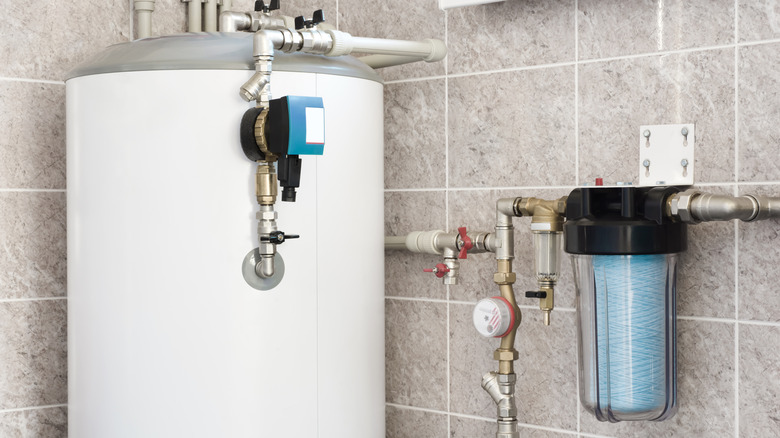Homeowners Can Get A $2000 Return For Getting A New Water Heater (But You Have To Act Fast)
For any homeowner on the fence about installing a more energy-efficient water heater, it might be the perfect time to make the switch. The federal government has been incentivizing homeowners to upgrade their electric and gas water heaters since 2023 by offering to cover 30% (or up to $2000) in tax credits — money that will help to reduce the total cost of purchasing and installing a new heat pump water heater. It doesn't matter what your income level is or how much you spend on the new water heater — as long as it meets standards determined by the Consortium for Energy Efficiency, you can qualify for the credit. On top of that, low and moderate-income households can also qualify for an additional rebate of $1,750 per unit.
But due to recent changes in legislation, the opportunity to receive the heat pump water heater tax credit will expire on December 31, 2025 — meaning you need to act fast if you want to take advantage of this credit. According to the US Department of Energy, water heating is likely your home's second largest energy cost, making up about 18% of most homes' energy use. This consumes natural resources as well as leaves homeowners with a bigger electricity bill at the end of the month. But switching to an Energy Star certified heat pump water heater can make a drastic change, utilizing more environmentally friendly energy sources, and saving the average household an estimated $550 per year in electricity bills — a major improvement when compared to standard electric water heaters.
Cost breakdown and claiming your tax credit
The New Building Institute conducted a survey comparing the costs of different types of water heaters and their installation prices. They concluded that the total combined cost for a heat pump water heater averaged about $4700, consisting of around $2000 for the pump and about $2700 for the cost of installation. The pricy installation cost is due to the overall complexity of heat pumps compared to electric and gas heaters. Applying the 30% tax credit helps bring that average price down to $3290. Plus, it's worth mentioning the fact that it helps homeowners reduce their energy costs at home. Once the upgrade is complete, you can claim your tax credit by submitting an IRS Form 5695 when you file your taxes, and the qualifying amount will be subtracted from your federal tax bill. But remember that this tax incentive is due to end on December 31, 2025.
Ari Matusiak, CEO of the nonprofit Rewiring America, urged individuals to move quickly when he spoke with NPR earlier this year, because in order to qualify for this credit, you need to do more than just purchase the new heater. It also needs to be installed in your home and "placed in service" before the December 31 deadline. You also want to make sure that your new heater meets the requirements. Some manufacturer websites will list this information on their pages, but you can also check the Energy Star product finder to be safe. As the year comes to an end, now might be the time to replace your water heater and take advantage of this credit before it disappears.

